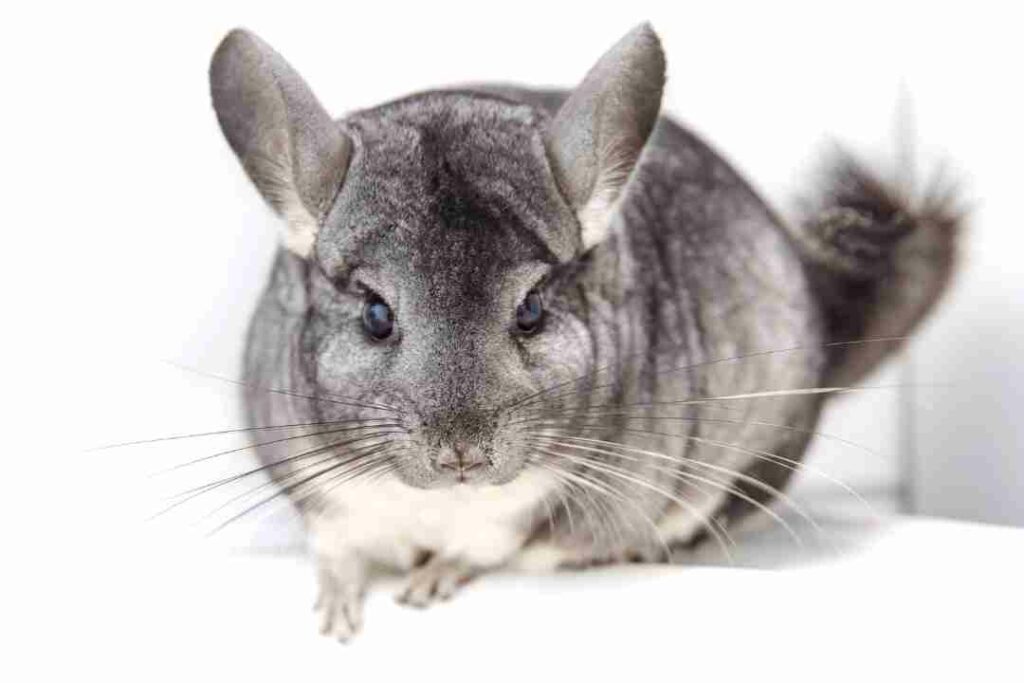Kinkajous, the name synonymous with the wilderness.
Do you fancy owning one of these aggressive animals?
Baby Kinkajou For Sale: US Breeders NEAR You!

| Name | Kinkajou | Phylum | Chordate |
| Scientific Name | Potos Flavus | Class | Mammalia |
| Lifespan | 23 years in captivity | Order | Carnivora |
| Weight | 1.4 – 4.6 kg (adults) | Family | Procyonidae |
| Kingdom | Animalia | Genus | Potos Geoffroy Saint-Hilaire and G. Cuvier |
| Species | Potos flavus | Size | 40- 60 cms (adults) |
The kinkajou is a tropical rainforest mammal of the family Procyonidae related to olingos, coatis, raccoons, and the ringtail and cacomistle. It is the only member of the genus Potos and is also known as the “honey bear”.
Kinkajous are arboreal, a lifestyle they evolved independently; they are not closely related to any other tree-dwelling mammal group like primates, some mustelids, etc.
| Breeder’s Name | Location | Contact Details |
|---|---|---|
| Carl Bovard | Florida | 904-377-7993 |
| Niki | Texas | 214-240-1939 |
| Zack Daniel | Oklahoma | 580-603-0262 |
| Niki | Texas | 214-240-1939 |
| Carol Yonk | Illinois | 217-825-6131 |
| Alyssa Alexander | Ohio | 330-257-6279 |
| Alvaro Bello | Florida | 850-757-2033 |
| Rafael Acosta | Florida | 813-297-5289 |
| Rose Gauthier | Florida | 561-405-0585 |
| Ashley Duncan | Texas | 210-241-1856 |
| Janda Exotics | Texas | 210-241-1856 |
| Ashley Duncan | Texas | 210-241-1856 |
| Christa Barker | Florida | 954-729-1554 |
| Ashley Duncan | Texas | 210-241-1856 |
| Rebecca Moore | Texas | 830-423-6424 |
| Dawn | North Carolina | 704-453-3773 |
| Mark Rosenthal | Michigan | 313-819-5719 |
| Panhandle Exotics | Florida | 850-542-4410 |
Can You Own A Kinkajou?
Owning a Kinkajou is no big deal. If you want to get your hands on one of these cuties, you will need a permit from your residential state. The permit won’t cost you anything but you will have to fill out a questionnaire to obtain it. Besides the permit, you will also need a certified breeder.
Do Kinkajous make good pets? Well, it totally depends on your kinkajou because they are wild animals and even when you try to domesticate them, their aggressive traits don’t fade away.
What States Are Kinkajous Legal In?
| Illegal States | Legal States |
|---|---|
| California | Florida |
| New York City | Washington DC |
| Pennsylvania | Texas |
| Hawaii | Ohio |
| Louisiana | Michigan |
| Georgia | North Carolina |
| Virginia | Illinois |
| Maryland | Oklahoma |
Note: Legal States, Rental Properties or Homeowners’ Associations Require Permission for Kinkajou.
Kinkajou Price
Different kinkajous have different prices, but if you are wondering how much does a kinkajou cost, then you must think of an amount between $750 to $3000*. This is the price bracket for kinkajous because it depends on the age, gender, breeder, and quality of the kinkajou.
Kinkajou Adoption
In order to own a kinkajou, you will need to obtain a permit from your state authority for exotic pets.
The permit doesn’t come at a cost, but you have to fill out a questionnaire to obtain the permit along with a certified breeder.
After you bring them home, make sure they are vaccinated for rabies, distemper, and deworming. You cannot forget to get them neutered or spayed to avoid aggression due to hormones.
Their diet is pretty easygoing which can include anything that they may find in their natural habitat but beware of artificial sweeteners which can become hazardous for your pet kinkajou. These animals love lots of space to roam around and play freely.
Breeders are always a good option to buy a kinkajou because they have all the information about the animal from day one.
Facts About A Kinkajou
- Kinkajous are called honey bears because they fondly raid beehives
- You may also find them slurping insects from their nests with their long skinny tongues
- Kinkajous snare food with their front paws and sharp claws
- Their hearing is keen enough to notice a hissing snake
- Kinkajous have a prehensile tail which they use as a balancing utility on branches
- They are frugivorous (fruit-eating) but are classified under carnivores (animal-eating)
FAQs
Here are some frequently asked questions about Kinkajous.
Are Kinkajous Illegal?
Many animals are illegal to own, transport, breed, import, or sell in various states across the US. Before indulging in any such activity, it is best to consult with the local wildlife authority and gather information about their illegal/legal status.
Are Kinkajous Legal In California?
Kinkajous are tropical rainforest wild animals and the weather of California isn’t suitable for keeping Kinkajous. Not legal in California because they are tropical rainforest animals. They are not native to California and are considered wild animals.
Are Kinkajous Legal In Texas?
Texas has the most lenient pet laws in the US. This is why Kinkajous are legal in Texas.
Are Kinkajous Legal In Florida?
Kinkajous are legal in the state of Florida.
Where Does The Kinkajou Live?
The natural habitat of a kinkajou is forest extending from Central and South America to the Southern coasts of Mexico and Brazil. The Kinkajou is the elite citizen of the upper canopy of these forests.
How Long Do Kinkajous Live For?
We don’t know for sure how long kinkajous can survive in the wilderness, maybe 20 years or so. But in captivity, kinkajous can survive for nearly three decades. Surprisingly, the longest a kinkajou survived has been recorded at about 40 years.
Are Kinkajous Intelligent?
Kinkajous are native to rainforests which is why they are highly intelligent animals. They have keen eyesight, and sharp hearing and are an overall curious species, making them highly desirable as exotic pets.
Are Kinkajous Aggressive?
Kinkajous are wild animals which makes them prone to aggressive traits. Besides this, their hormones, diet, age, inappropriate enclosure, lack of nutrition, and relocation can also make them aggressive. When they get aggressive, they are startled easily, and once startled, they may attack.
Can Kinkajous Eat Candy?
Though Kinkajous are classified as carnivores due to the presence of canine teeth, their main diet consists of fruits and nectar. Candy, however, isn’t a good option because of the presence of artificial sweeteners in them, which are toxic for kinkajous.
Can You Potty Train A Kinkajou?
No, you can’t. Kinkajous have earned themselves a bad reputation due to their hygiene. You cannot train them to use the latrine or think of litter box training. They usually stick to their regular spots for ‘nature calls’ which can usually be the highest perch around them.
Can Kinkajous Bite?
Kinkajou bites aren’t frequently reported in the US. This canine has razor-sharp teeth but its bites aren’t very destructive. These can easily be managed by the ER physician, nursing staff, or GPs.
How do big Kinkajous get?
As compared to other animals of the carnivore family, kinkajous are relatively small. Their maximum length and weight as adults may reach 40-60 cm and 1.4-4.6 kg respectively.
Are Kinkajous Lemurs?
Initially, Kinkajous were classified as lemurs because they are forest dwellers and their prehensile tails and hand-like feet resemble lemurs. But they aren’t lemurs by any chance.
Are Kinkajous Monkeys?
At the first glance, anyone can mistake them for a monkey due to their similar traits and features. But they aren’t monkeys for sure.
Do Kinkajous Sweat?
KInkajous have extensive sweat glands and they may sweat profusely.
Do Kinkajous Eat Honey?
They aren’t called honey bears without a reason. Kinkajous love to slurp honey from beehives with their long, sticky tongue.
Do Kinkajous Carry Diseases?
Yes, kinkajous carry diseases but there are no indications of human infection. But pet owners have to remain cautious and vigilant with routine veterinary checkups. Routine deworming sessions should be prioritized along with good hygiene practices.
References and Further readings
- https://en.wikipedia.org/wiki/Kinkajou
- https://animals.sandiegozoo.org/animals/kinkajou
- https://www.nationalgeographic.com/animals/mammals/facts/kinkajou
SmallPetsX.Com does not provide veterinary advice. Our aim to help small pet owners understand their pets a little better so that they can provide their pets with the life they deserve. All content is therefore for informational purposes only. If you're concerned about the health of your pet you should seek medical advice from a vet.




